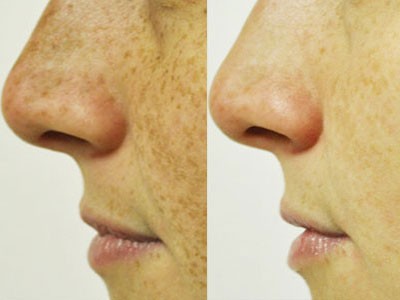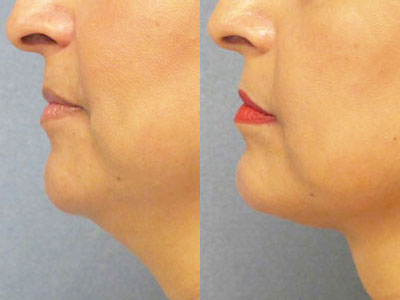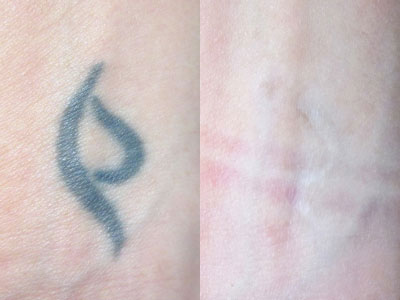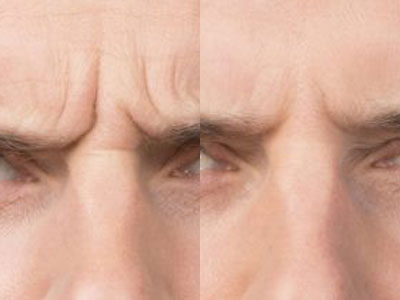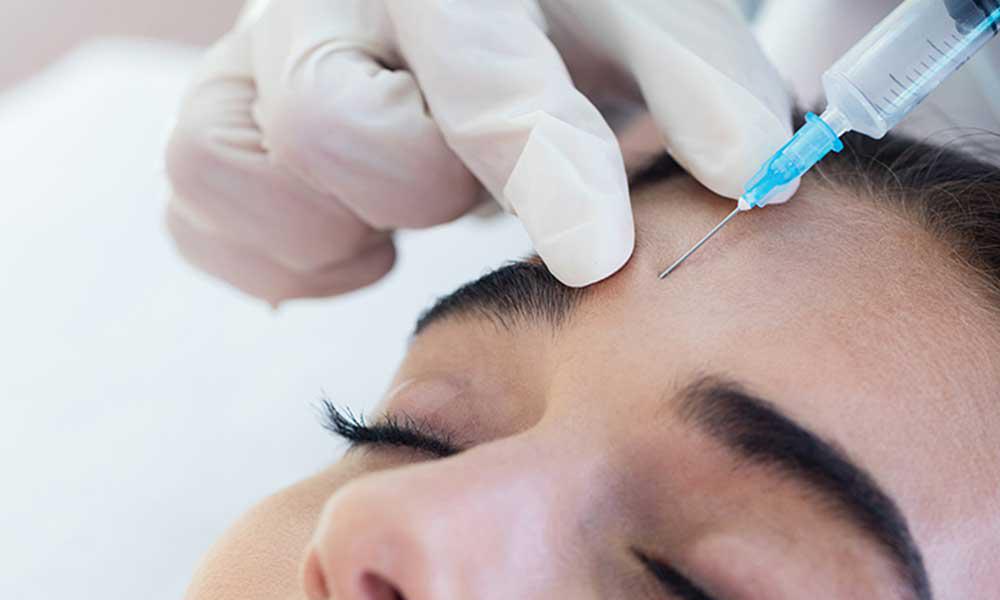Have you been considering Botox injections but wonder what the chances are that you could have a bad reaction?
Your concerns are completely normal and are to be expected from anyone who is considering an elective procedure or surgery.
However, an adverse or allergic reaction to Botox is very rare.
Only 36 cases involving adverse effects were reported to the FDA between 1989-2003.
Out of the 36 cases, doctors reported that 13 of them had more to do with an underlying condition.
Research shows us that cosmetic Botox is even safer than therapeutic Botox because the dose is lower.
Rest assured, the overall risk of having a bad reaction to Botox is minimal and the injections are considered safe.
Below you’ll learn exactly what you can expect, and how to best care for yourself post-procedure in order to enjoy the full effects of your Botox experience.
Afterall, Botox IS a good thing.
Do Botox Injections Have Side Effects?
As with any medical procedure, one can expect that there will be some side effects.
Knowing what you can expect is an important part of your decision to have Botox.
The right doctor will explain the procedure, possible side effects, and how long they should last.
You should always go to an experienced and board-certified dermatologist or surgeon for any medical procedure, and cosmetic or therapeutic Botox is no exception.
So, are there any bad side effects to Botox injections?
7 Possible Botox Reactions
What could a reaction to Botox injections look like?
We’ve compiled a list of some of the most common side effects below, and what you should do if you have a reaction.
When performed by an experienced doctor, Botox injections are typically safe.
You are more likely to encounter negative side effects if your Botox injections aren’t prepared to FDA standards, or if they are injected by an inexperienced doctor.
Most doctors will recommend that you do not get Botox if you are pregnant, breastfeeding, or allergic to the protein in cow’s milk.
Mild Pain, Swelling and Bruising
Most often, the reactions of Botox and fillers happen around the injection site.
Mild pain, swelling and bruising are common after Botox injections. Even the smallest needle can cause bruising or swelling.
Bruising is caused when a damaged blood vessel bleeds into the surrounding area.
There are steps you can take to avoid or minimize bruising, but you should always speak to your doctor about your individual circumstances.
What To Do About It
Some strategies to reduce the appearance of bruising include:
- Keep your head elevated above your heart
- Apply ice at regular intervals for 2-3 days following treatment
- Avoid drinking alcohol a day prior to and immediately following injections
- Avoid blood thinners, if possible
- Avoid vigorous activities for 2-3 days following treatment
If you take any supplements or medications, please speak to your doctor in advance for any personalized recommendations.
Flu-like Symptoms
In one recent study, 9.2% of 218 patients studied reported flu-like symptoms.
The symptoms usually occur within the first month following treatment and are commonly described as mild to moderate.
Symptoms can be defined as an upper respiratory tract infection associated with fever and fatigue.
What To Do About It
As with any flu, symptoms can be treated easily.
Follow these simple steps to recovery:
- Rest and downtime
- Drink plenty of fluids
- Acetaminophen for aches and fever
- Take a steamy bath
- Use a humidifier
- Try an expectorant
It is recommended that you speak to your doctor before taking any medications following your procedure.
A Headache
Some patients may experience headaches following injections to the forehead.
There is no consensus among experts as to the cause of the headaches.
Some theories include:
- Accidental bumping of the frontal bone of the forehead
- Over-contraction of certain facial muscles
- Potential impurities in a particular batch of Botox
What To Do About It
While the cause of the headache may be unknown, it’s simple to treat a headache with an over-the-counter (OTC) medication such as acetaminophen.
Taking an OTC should relieve your headache within a few hours or a few days.
Always discuss your symptoms with your doctor, who will make recommendations based on your individual circumstance.
Constipation and Nausea
An upset stomach, nausea, or constipation can occur in 1 to 10% of patients.
Symptoms are reported as mild or moderate and typically last a few days up to two weeks.
What To Do About It
While uncomfortable, treating an upset stomach caused by constipation and nausea can be simple:
- Increase your intake of fruits and vegetables
- Drink ginger tea to soothe your stomach
- Eat bland, low-fat foods
- Take a fiber supplement or stool softener, as directed
- Take a warm bath
- Light exercise 3-5 times a week
Dry Mouth
You may find that your mouth feels dry after Botox injections.
This is not uncommon and usually passes within a few days.
Any of the symptoms below can indicate a dry mouth as a result of your injections:
- Mouth feels sticky or dry
- Saliva is thick or stringy
- Your throat feels hoarse or dry
- You have trouble swallowing
What To Do About It
To relieve a dry mouth try the following remedies:
- Take small sips of water often
- Suck on sugarless candy
- Chew sugar-free gum
- Use alcohol-free mouthwash
- Avoid breathing through your mouth
Dysphagia or Trouble Swallowing
Because the response to Botox can vary among patients, dysphagia, or trouble swallowing, can occur even after the most expertly applied injections.
While a given dose may not be enough for one patient, it can prove to be too much for another.
This may result in toxins spreading to the muscles next to the injection site.
This side effect usually occurs within 2-10 days of treatment, and almost always resolves itself.
It’s important to let your physician know exactly what symptoms you are experiencing as future doses may need to be adjusted.
What To Do About It
If you experience dysphagia as a result of your botox, you can:
- Take small mouthfuls of food and chew thoroughly
- Keep a glass of water nearby while eating to help wash food down
- Try eating only softer foods for a while, avoiding anything hard or crusty
- If swallowing fluids is difficult, try sitting up and using a straw while drinking
If food or drink is frequently entering the windpipe, it could end up in your lungs and cause an infection.
While this is very rare, you must contact your physician immediately.
Drooping eyelids
When Botox migrates to either the forehead or the area between the eyes, this can result in a droopy eyelid.
One reason people choose Botox may be to reduce the appearance of forehead or vertical frown lines.
On occasion, some of the Botox may seep into the upper eyelid and paralyze the muscle that holds the upper eyelid up.
This can result in a drooping eyelid.
What To Do About It
Droopy eyelids should disappear within four to six weeks, but you can alleviate symptoms by trying these treatments:
- Apraclonidine- eye drops that can help drooping eyelids (but not drooping eyebrows)
- More Botox to counteract the relaxed muscle
Choosing the right doctor can greatly reduce the risk of side effects such as drooping eyelids.
How Long Do Botox Side Effects Last?
Most side effects are temporary and should relieve themselves shortly.
Side effects can occur in anyone, regardless of age or health risk.
Botox remains overwhelmingly safe when performed by a qualified doctor or surgeon. Most doctors rarely see adverse effects, other than mild bruising or swelling.
However, side effects may indicate an allergic reaction and would be cause for you to seek immediate help.
Can Botox Cause Allergic Reactions?
Can you be allergic to Botox?
An allergic reaction to Botox injections is possible, though it is not very common.
There have been no cases of systemic (body-wide) reactions to Botox, and no one has died.
Usually, an adverse side effect of Botox will present itself within the first week following treatment.
A delayed allergic reaction to botox is highly unlikely.
However, if you are experiencing any symptoms of an allergic reaction, you should speak to your doctor immediately.
What Does An Allergic Reaction To Botox Look Like?
If you experience any of the following symptoms, you could be having an allergic reaction:
- Hives
- Itching
- Wheezing
- Difficulty breathing
- Dizziness
Or swelling of the:
- Face
- Lips
- Tongue
- Throat
What To Do If You’re Having An Allergic Reaction To Botox
If you think you are having an allergic reaction to your Botox injections, contact your doctor or surgeon immediately.
If you experience severe swelling of the face or difficulty breathing, call 911.
Where To Turn For Botox And Botox Reaction Information
Would you like to know if Botox could be right for you?
For more information about Botox and Botox safety, contact our office to request a FREE consultation.


